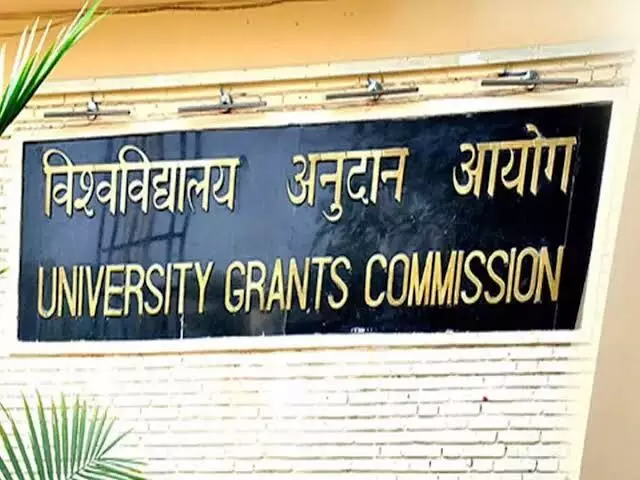Ragging in Digital Era: UGC asks colleges to tackle abuse in student WhatsApp groups
UGC warns against harassment on WhatsApp groups asks to stop online ragging of junior students
By Anoushka Caroline Williams
New Delhi: UGC warns against harassment on WhatsApp groups
Hyderabad: The University Grants Commission (UGC) has issued a directive to all higher education institutions across the country to closely monitor informal WhatsApp groups and other digital platforms where incidents of student harassment are reported.
These virtual acts of ragging, the UGC has clarified, will now attract strict disciplinary action under the existing anti-ragging regulations.
WhatsApp harassment to be treated as ragging
“In several cases, seniors form informal WhatsApp groups, contact juniors and subject them to mental harassment. This too amounts to ragging and will invite disciplinary measures,” the UGC said in its latest advisory.
The commission receives numerous complaints every academic year from first-year students who allege being targeted by seniors through online platforms. These range from verbal abuse and coercion to social exclusion and psychological intimidation.
Psychological distress and digital coercion
Highlighting the shift in ragging practices from physical spaces to digital platforms, the advisory noted: “Such acts cause physical and psychological distress and are serious violations of anti-ragging regulations and completely unacceptable.”
Instances of students being forced to cut their hair, remain awake for long hours or comply with humiliating instructions in group chats have become increasingly common.
The UGC also flagged a disturbing pattern of threats involving ‘social boycott’ for juniors who refuse to follow seniors’ instructions. These threats, although less visible than physical hazing, leave a lasting psychological impact on students.
UGC can withhold grants from erring institutions
Reiterating the responsibilities of educational institutions, the UGC warned that “Student safety on campus is paramount and non-negotiable. Failure to enforce anti-ragging norms may lead to stringent action, including withholding of grants.”
Universities and colleges have been advised to set up effective monitoring mechanisms for digital communications, including designating faculty to oversee informal student networks and creating robust complaint redressal systems.
Dr Mukhesh Srivastava, a senior education policy analyst and former dean of Student Affairs at a Hyderabad university, said, “Ragging has evolved with technology. The emotional damage caused by online bullying can be just as harmful, if not more, than physical acts. This move by the UGC is overdue and necessary.”
Experts call for digital literacy and preventive measures
Psychologist and youth counsellor Dr Sheetal Rao welcomed the advisory but emphasised the need for educational institutions to go beyond surveillance.
“The long-term solution lies in sensitising students about digital ethics, peer respect and emotional well-being. Institutions must conduct regular workshops and interventions to build empathy among seniors,” she said.
Cyber law expert advocate Raaj Mohan added, “While ragging is typically associated with physical harm, online harassment falls under several penal provisions, including Section 66A and 67 of the IT Act when it involves obscene or threatening messages. Colleges must treat these seriously and cooperate with law enforcement where required.”
Strengthening the anti-ragging framework
The UGC has urged institutions to ensure that the anti-ragging committees and squads are fully operational, with clear jurisdiction over online platforms. It has also directed them to update students during orientation programmes about what constitutes ragging, both offline and online, and the consequences of engaging in such behaviour.
Students can continue to file complaints through the UGC’s anti-ragging helpline and the online portal, where anonymity and protection are guaranteed.
The directive marks a step in addressing the evolving nature of student abuse in higher education spaces. By recognising digital bullying as a form of ragging, the UGC aims to protect students’ mental health and ensure that campuses, both physical and virtual, remain safe learning environments.
UGC Anti-Ragging Helpline:
- 24x7 Toll-Free Number: 1800-180-5522
- Email: helpline@antiragging.in
- Online Complaints: www.antiragging.in